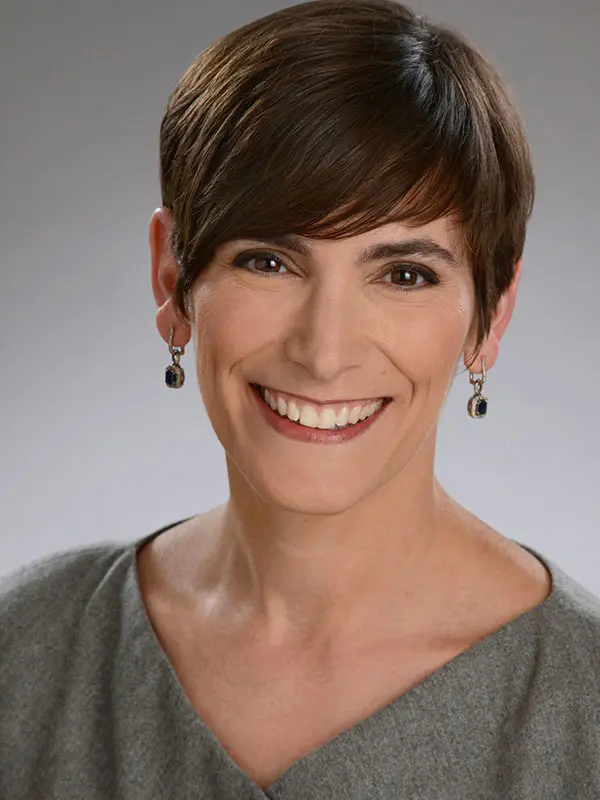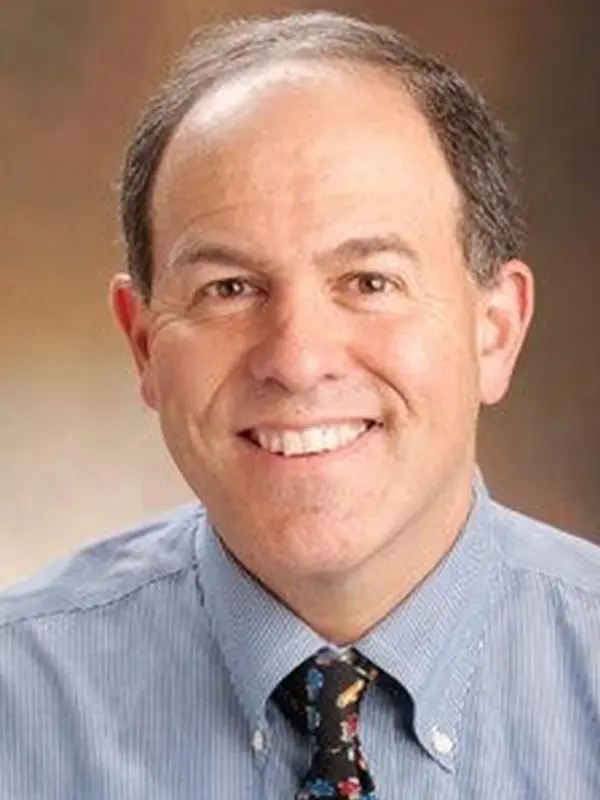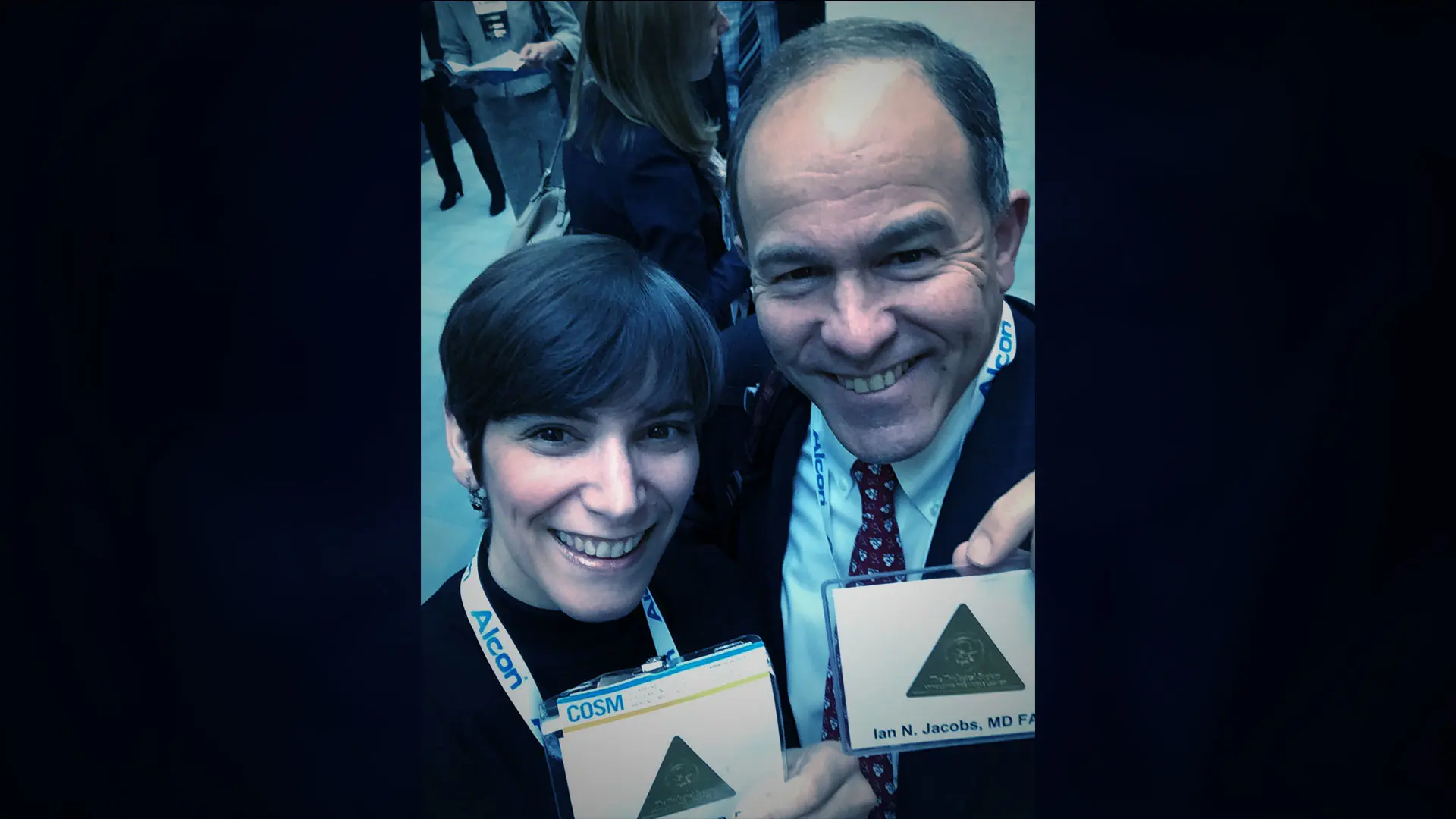When Karen B. Zur, MD, recalls her interview with the Otolaryngology Residency Program at the Icahn School of Medicine at Mount Sinai in 1998, two things come to mind: her nervousness while waiting to be interviewed, and the hot chocolate that Steven H. Sacks, MD, Assistant Clinical Professor of Otolaryngology, brought to help calm her.
“I thought, ‘They are really nice here,’” says Dr. Zur, who is now Division Chief of Otolaryngology, Director of the Pediatric Voice Program, and Associate Director of the Center for Pediatric Airway Disorders at Children’s Hospital of Philadelphia (CHOP).
“Mount Sinai had been my No. 1 choice because of the expertise in head and neck, and that kindness validated my decision to train there,” adds Dr. Zur, who completed her residency in 2003. “I met so many great doctors and mentors who had a huge impact on me and my career.” They include Mark Urken, MD, Professor of Otolaryngology; the late Peter Som, MD, Professor of Radiology, and Otolaryngology; and Peak Woo, MD, and Michael Rothschild, MD, both Clinical Professors of Otolaryngology.
Collaborating With Leading Experts
Her positive experiences echo those of her colleague Ian N. Jacobs, MD, MLA, the Medical Director of the Center for Pediatric Airway Disorders in the Division of Otolaryngology at CHOP, who completed his residency in 1991. More than the breadth and depth of cases he worked on, it was the dedication and teaching of Mount Sinai attendings such as Dr. Urken; the late Hugh Biller, MD, Chair of Otolaryngology – Head and Neck Surgery at The Mount Sinai Hospital; and William Lawson, MD, Professor of Otolaryngology, that both inspired and equipped him with the necessary skills to advance his medical career.
“I was fortunate to be able to collaborate with Ira Sanders, MD, who was pretty much 100 percent research-focused,” Dr. Jacobs recalls of the former Associate Professor of Otolaryngology and Research Director of what is now the Grabscheid Voice and Swallowing Center of Mount Sinai. “It was very intricate and detailed work, which helped me build some credibility in the field. Having opportunities to be published and deliver a presentation at the American Laryngological Association were beneficial for me.”
Dr. Sanders also helped shape Dr. Zur’s residency experience through lingual nerve anatomy research. That experience was complemented by translational work with Dr. Urken involving sensory outcomes from free flaps of the tongue, and pediatric research with Dr. Rothschild involving the formation of biofilm in the endotracheal tubes of newborns. “At the time, it was an emerging concept,” Dr. Zur says. “I believe our paper was one of the first to look at that phenomenon.”
Gaining Valuable Team and Leadership Skills
Training at Icahn Mount Sinai proved invaluable for Drs. Zur and Jacobs in progressing to leadership positions. Dr. Jacobs credits the opportunity to serve as Chief Resident of Mount Sinai’s Otolaryngology Residency Program as fundamental for instilling him with the necessary confidence and knowledge. “It was the complexity of the role that was particularly invaluable,” he notes. “You are responsible for running a very large system and for knowing everything about every patient. Overall, it was inspiring and many of the practices I apply to this day are based on experiences I had during residency.”
For Dr. Zur, it was Mount Sinai’s model of multidisciplinary care that shaped her career and her approach to medicine. She values the fact that experts such as Dr. Som and Margaret S. Brandwein-Weber, MD, Professor of Pathology, Molecular and Cell-Based Medicine, and Chair of Pathology at Mount Sinai West and Mount Sinai Beth Israel, contributed their perspectives to patient cases.
“We learned not just about the surgical aspects of each case but also the essentials for interpreting imaging and examining slides, which was really helpful for our boards,” Dr. Zur says. “Not everyone has that kind of experience and exposure in terms of integrating expertise, but we really learned the benefit of working as a team.”
Advice for Future Trainees
These experiences continue to inspire Drs. Zur and Jacobs in their efforts to advance the field of otolaryngology in their current roles: Dr. Zur introduced recurrent laryngeal nerve reinnervation as a treatment modality for dysphonia and aspiration among children with iatrogenic unilateral vocal fold paralysis. Dr. Jacobs and his team contributed to updated National Capital Poison Center guidelines that recommend administering honey to children who have swallowed a button battery to potentially reduce the risk of injury.
Having benefited from the Icahn Mount Sinai residency experience, Drs. Zur and Jacobs have advice for the trainees following in their footsteps. Dr. Jacobs recommends exploring unresolved research issues or questions, which could provide focus for their careers, while Dr. Zur encourages them to seize every opportunity to gain experience and to keep an open mind about their area of specialization.
“There will come a point in training when you need to think about what your next steps will be,” she says. “I had no interest in pediatric otolaryngology, but that changed based on my experiences with Dr. Rothschild. Listen to your heart and your gut based on the mentorship you receive, and that will help you make the right decision for your career.”
Featured

Karen B. Zur, MD
Division Chief of Otolaryngology, Director of the Pediatric Voice Program, and Associate Director of the Center for Pediatric Airway Disorders, Children’s Hospital of Philadelphia

Ian N. Jacobs, MD, MLA
Medical Director of the Center for Pediatric Airway Disorders, Division of Otolaryngology, Children’s Hospital of Philadelphia
